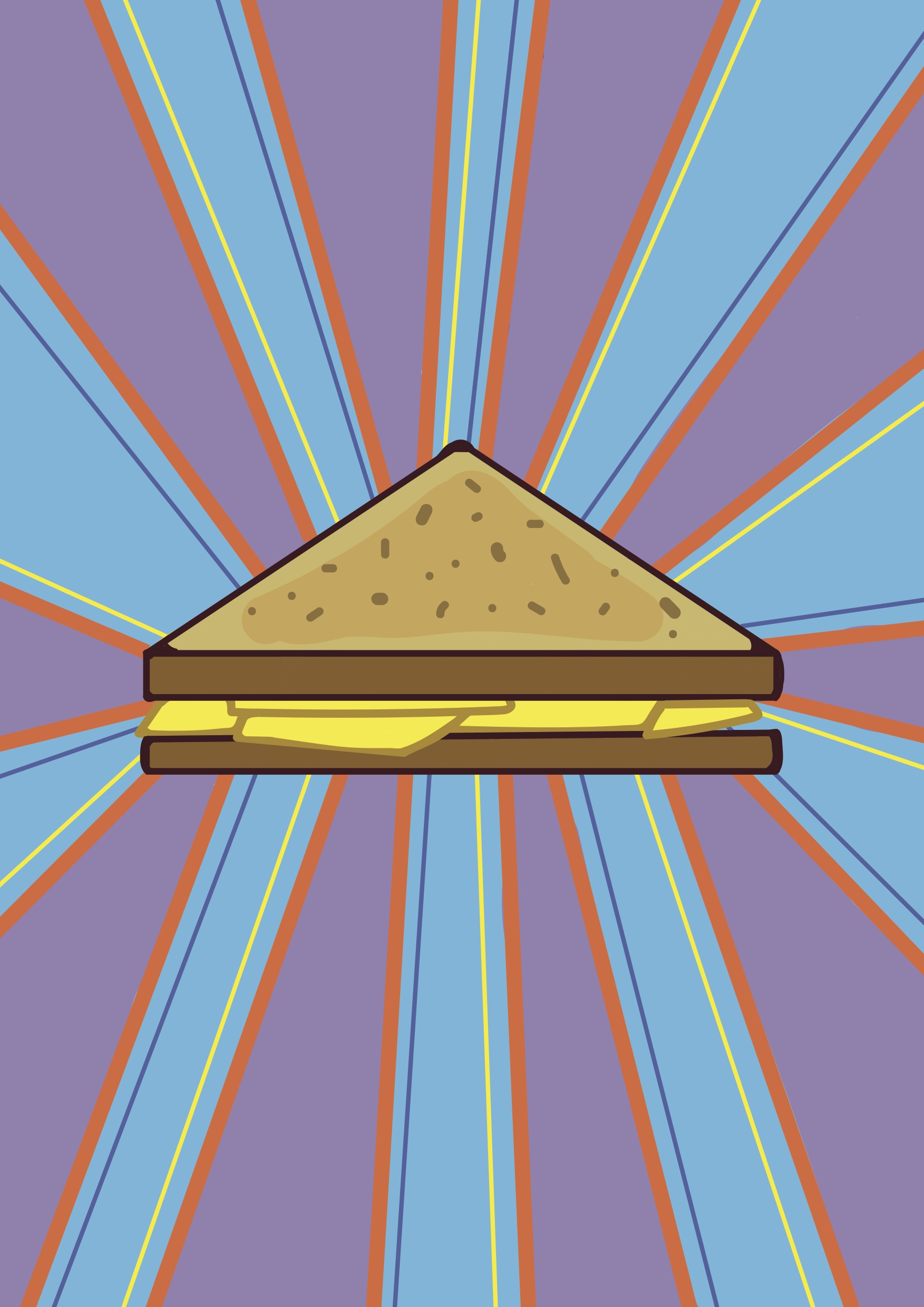[Written by Katie Veitch]
[Image by Grace Elder]
It can seem completely intuitive to us that we do indeed have free will. Surely, it can only have been my prerogative, and nothing else, that led me to buy that vintage Louis Theroux T-shirt for £35. There can’t be any pre-determined reason making that an inevitable decision, right? To clarify, free will extends to more than just clothing choices; free will is the ability to have many choices in front of us and to pick one without any external influence. It’s the ability to be the playwright of our own life, instead of the lead actor. However, when we look into the science behind these concepts, it seems that there really may be an explanation for everything we do and think.
For the purpose of this article, I will use the example of picking which sandwich to have for lunch, where we select, say, a cheese sandwich.
On the level of physics, it is even possible to almost disregard free will as non-existent due to its almost insignificance. When we look at the extent of the size of the universe – if its eternity even allows it to be referred to as a ‘size’ – we are a very small part of that. The physical phenomena that even led us to existence and, indeed, life are far more interesting and significant than the way we decide to live that life. It is also possible, through a unified theory of physics, with laws that determine every movement and interaction of every particle on earth, that every single action we ever make will be predictable. Our current inability to gather information on an atomic level may be the only thing that still allows the element of surprise or independence in human life to persist.
If this is too futuristic or complex for you to buy in to, then maybe you’d rather turn to psychology or neurology to give us the answers. Perhaps a need for a particular element in our system is detected by our body and we are compelled to choose the cheese sandwich in a desperate chemical desire for aluminium. Or, perhaps it was a flash of energy between various neurons which were attracting a larger amount of energy at that moment in time. A chain of reactions was then released leading to our final decision to opt for the cheese sandwich. It could even be a psychological condition such as borderline personality disorder, which forces us to pick something we don’t like in attempt to self-sabotage. What makes us ‘not like it’? Well, a simple genetic composition which makes your taste buds more partial to sweet or sour flavours can change the taste of something completely between two different people. Essentially, by this sort of science, it seems like it’s our physical bodies making the decisions, rather than our minds.
But, perhaps you’re still not satisfied. You believe in your desires and feel very compelled that your likes and dislikes are things you are very conscious of. And that may be, but they are probably present because of events that are entirely out of our control. For this, we look to our ideology; our subconscious understanding of the world that has been shaped by our education, family and formative culture. Suppose one of the sandwich options was a human meat sandwich. While we may think this a disgusting option that no one would ever choose, someone in an ancient society – where the only way to survive might have been to resort to this – would think this was a viable or necessary option. But due to the society we have been raised in, this sandwich is not at all an option to us. Or, say there was a slightly more common option, maybe an egg sandwich. While this is acceptable in our culture, it may have been something you were subjected to regularly as a child to make you grow big and strong, in particular the crusts for curly hair, that you would now tend to avoid as you feel you’ve had enough to last you a lifetime. Either way, the opinion you have of these options is not a direct result of your unique mind, but a result of the experiences you’ve had that were not determined by you.
By looking at the advanced knowledge of all the sciences that we have now developed, it can seem very convincing that all the decisions we make are not necessarily our own or are predetermined entirely. However, just because this is the case does not mean our lives can’t be just as worthy and enjoyable as when we believed they were still to be written. Modern philosopher Daniel Dennett1 describes our free will in terms of language: describing our actions as if we determined them is a better way to explain our behaviour, and free will goes no further in reality than that. It definitely seems to be better for humans to believe in free will, in order to keep our understanding of morality and justice and in order to live in a more harmonious world where our lives are significant and our own. Maybe it just means that next time you pick the cheese sandwich over the egg and cress monstrosity, or indeed the chocolate muffin instead of the banana, you don’t need to feel so guilty; it wasn’t you that made the decision!
- Dennett, Daniel. 1978. “Brainstorms: Philosophical Essays on Mind and Psychology (The MIT Press).
[Image Description: A drawing of a cheese sandwich on a blue and purple background.]

